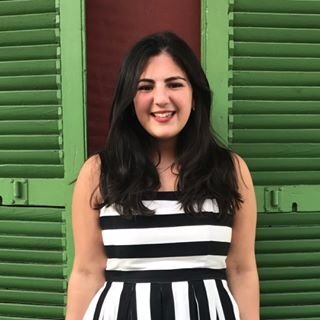This Weight Stigma Awareness Week (WSAW), taking place Monday, September 28 – Friday, October 2, 2020, we want to End Weight Hate and help the broader eating disorders community understand why weight stigma and weight discrimination should matter to everyone. As well as how it contributes to and exacerbates eating disorders in people of all sizes, especially folks in higher weight bodies.
To kick off the week, we asked members of the NEDA Community to record a video sharing what a world without weight hate—or weight stigma—means to them.
How do you envision a world without weight hate?
For me, a world without weight hate means people wouldn’t be judged based on the size of their body or fear potential weight gain, especially during the eating disorder recovery process. Treatment centers wouldn’t create group rules such as, “refrain from using three- or four-letter ‘f-words,’” implying that “fat” is as offensive of a word as “f*ck.”
In a world without weight hate, calling someone fat wouldn’t be considered one of the worst insults imaginable. There would be less internal and external weight bias, and “fat” would be recognized as a neutral descriptor, similar to words like “tall,” “short,” “young,” and “old.”
In a world without weight hate, I wouldn’t still be traumatized from classmates sending me Myspace messages telling me to eat more Twinkies; people I went to camp with wouldn’t have created fake “AIM” accounts to send anonymous messages poking fun at my weight; and that boy in my 8th grade class wouldn’t have smacked my butt and called me “fat ass” while his friends snickered in the background.
In a world without weight hate, doctors would have identified and addressed my eating disorder earlier on, instead of recommending weight loss and diet plans when I actually needed treatment and support. And when I finally had the courage to seek residential treatment, a fellow patient wouldn’t have pulled me aside and said, “While I believe you have an eating disorder, I think you would be better off at a facility where more people look like you.”
In a world without weight hate, Weight Stigma Awareness Week (WSAW) wouldn’t need to exist. We would all understand that our beauty, value, and worth extends beyond our body shape and size. We would recognize that all people deserve love and respect, and that our bodies are not up for discussion or critique.
On behalf of NEDA, I hope you will join us this week to bring awareness to the dangers of weight stigma, weight discrimination, and fatphobia. You can visit www.nationaleatingdisorders.org/wsaw for more information about this week’s campaign, and let us know what a world without weight hate means to YOU by using the campaign hashtags – #WSAW2020 and #EndWeightHate – on social media.
Chelsea Kronengold, MA, is an eating disorders and body liberation activist and nonprofit professional. Chelsea graduated summa cum laude from the University of Florida, subsequently receiving a masters degree in clinical psychology from Columbia University. Presently, Chelsea is the Communications Manager at the National Eating Disorders Association (NEDA) and serves as a master trainer for the Body Project; an evidence-based body confidence and eating disorders prevention program for women and girls.
Chelsea frequently speaks on behalf of NEDA about her personal and professional experience with body image, eating disorders, media literacy, and weight stigma; she has appeared in national media platforms including The New York Times, Teen Vogue, WebMD and SiriusXM Doctor Radio.






